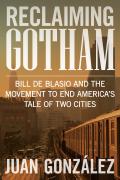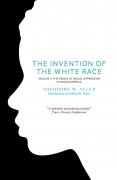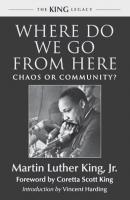Current IssueFrom the Editors
Since Donald Trump has taken up residence in the White House, the country has faced a series of political controversies, a barrage of right-wing legislative and regulatory initiatives, a growing far-right movement, but also a broadening resistance from various sectors of society. Trump: Political Crisis, Right-wing Policies, and the Resistance
Donald Trump’s first six months as president of the United States has been bad in so many ways that it is hard to know where to begin. One Hundred Years of the Russian Revolution: A Retrospective View
At a distance of one hundred years, the Russian Revolution, which truly shook the world, deserves to be remembered once more in terms of its emancipatory significance and its downfall and betrayal. This revolution would not have happened had it not been for the crucial role played by the Bolshevik party. It is true that the profound crisis affecting the Russian society, worsened by the country’s disastrous participation in World War I, could have sooner or later led to a massive upheaval. But it is questionable that a socialist revolution would have taken place without the organizational skills of the Bolshevik party and the political, strategic, and tactical genius of V.I. Lenin. The Russian Revolution, Soviets, and Socialist DemocracyAn Interview with Suzi Weissman
“Revolutions are the mad inspiration of history” Leon Trotsky, My Life
The Tragic Fate of Workers’ Russia
[This is the second of three articles commemorating the Russian Revolution of 1917 and analyzing its fate under Stalin. The first part, “Glorious Harbinger of a New Society: the Bolshevik Revolution,” was published in the previous issue of New Politics, number 62, winter 2017. The text below is slightly expanded from what appeared in the print issue.] Soon after the Treaty of Brest-Litovsk was signed on March 3, 1918, the Soviet republic was under siege. Various anti-Bolshevik forces, some supported by the Allies or the Central Powers, were gathering. If these forces succeeded in reversing the October Revolution, what would be the result? Antonio Gramsci: From War to Revolution
Eighty years after his death, Antonio Gramsci is among the most influential Marxist intellectuals across the board. By the end of World War II, liberal intellectuals had already found in him “a Marxist you can take home to Mother.” The tone was set by Benedetto Croce, who allegedly gushed in 1947, upon reading Gramsci’s Prison Notebooks, “He’s one of us!”1 It reached the point that the Sardinian activist can be presented today as no less than the guarantor of “Italian Democracy.”2 Looking Back at the June 1967 Middle East War
JUNE 2017 IS THE FIFTIETH ANNIVERSARY of the 1967 Middle East War—the June War or, as Israelis like to call it, the Six Day War. Why should we care today about this historical event? For one, the war—with its resulting conquests, refugees, and shifting alliances—helped define the modern Middle East and make it one of the world’s great flash points for further conflict. But there are other reasons as well why this war bears re-examination. Self-organization in the 2016 Palestinian Teachers Strike
From February 14 to March 13, 2016, 35,000 Palestinian teachers in the West Bank government-run school system were on strike. The teachers’ goal was to hold the Palestinian Authority to the terms of a 2013 agreement between the General Union of Palestinian Teachers (GUPT) and the Ministry of Education, an agreement the Palestinian Authority had reneged on for three years running. (Ma’an News, Feb. 16, 2016) Socialism from Below? Bolivia in an Age of Extractivism
Bolivia received global attention for its anti-imperialist and anti-capitalist social movements in the twenty-first century. Best known perhaps were the Water Wars, against water privatization, in 2000 and the Gas Wars, demanding nationalization of the gas industry, in 2003. These rebellions entailed a radical rethinking of natural resource use and distribution. Puerto Rico and PROMESA: Reaffirming Colonialism
“Puerto Rico will be in a death spiral!” With this dramatic announcement, Governor Alejandro García Padilla transformed the island nation’s long-simmering debt overhang problem into an international spectacle. A financial mess that seemingly concerned only institutional investors, municipal bondholders, and some hedge fund managers exploded into a full-blown debt crisis with disquieting parallels to the situation in Greece. Remembering Dependency TheoryA Marxist-Humanist Review
This article aims to show that dependency theory underlines vividly the problem of examining the logic of capital independent of Marx’s concept of value. It is impossible to completely understand the essence of Marx’s critique of political economy, especially a vision of an alternative to capitalism, without grasping value as distinct from exchange value. The distinction is of vital importance, since uprooting relations of exchange cannot itself eliminate the defining principle of capitalism: abstract labor, production for the sake of value. U.S. Workers in the Late Neoliberal EraThe Pressures, the Changes, the Potential
Capitalism in the United States and across the world has gone through a series of mind-bending crises, spatial “fixes,” and continuous restructurings that have disoriented organized labor in most of the developed economies since the beginning of the neoliberal era in the late 1970s and early 1980s. The Left, the Right, and Globalization
Don’t be tricked into thinking that what is going on is a debate about “free trade”—the unhindered exchange of goods—because it is not. Agrarian Reform and the Radicalization of Food Politics
If you’ve seen any of the documentaries that are critical of U.S. agriculture, then you’re most likely aware of the increase in some innovative and somewhat unconventional experiments in growing food—bee hives and gardens on hospital roof tops, abandoned warehouses turned into greenhouses, farms that double as a local community’s source of fresh produce and the pizzeria. The Jewish Role in the Industrial Workers of the World
The most radical and militant union in American history was the Industrial Workers of the World (IWW), colloquially known as the Wobblies. Its active years were from 1905 to 1919, or at best until mid-1920 when it led its last major struggles—a maritime workers strike in California and a miners strike in Colorado. Fierce government repression during and after World War I, along with vigilante violence and internal divisions, dealt the IWW blows from which it never recovered. The mass industrial union movement during the New Deal passed it by. Yet, the IWW continues to exist on a small scale to this day. Harvey, Klein, Smith, Foster: Militant Particularism and Ecosocialism
In “Militant Particularism and Global Ambition: The Conceptual Politics of Place, Space, and Environment in the Work of Raymond Williams” (1995), David Harvey discusses the challenges presented by moving from place out across time. In the midst of his involvement in a participatory research project within a high-stakes local struggle against the closure of an automotive plant, he was accused of being a “free-floating Marxist intellectual,” an outsider, and he was given the “evil eye” and asked to explain “where his loyalties lay.” (71) This is in an environment where people were losing jobs, and families and communities were being destroyed. Art Spiegelman on Si Lewen
Reading, actually looking obsessively at the pages of, this volume and non-volume inevitably brings to mind an unpublished, uncompleted 1967 essay by Herbert Marcuse, “Lyric Poetry After Auschwitz,” translated and published after his death. Here Marcuse says, in part, The Real Tragedy of Che Guevara's LIfe
In Latin America we have a saying, “Poner el dedo en la llaga,” a phrase that means to call attention to a delicate or worrisome point. However, llaga means literally an open sore or ulcer. I believe that Cuban socialist and scholar Samuel Farber puts his finger indeed on a significant sore point in revolutionary history with his latest book, The Politics of Che Guevara: Theory and Practice. While recognizing the undeniable determination, egalitarianism, and selflessness of Che Guevara in his fight against imperialism, Farber meticulously exposes the contradictions of Che’s thought and the political, economic, and social detours that Guevara took in his honest quest for a better world. A Complete Story of AtticaAt long last
Heather Ann Thompson has written a magnificent history of the Attica Prison uprising, the deadliest prison rebellion in U.S. history. It is a long book, nearly 600 pages of text and another 150 of notes and apparatus. It’s a timely book: Attica casts its uneasy shadow over our halting steps to unwind the social catastrophe that is mass incarceration. Memories of Struggle and Despair in the Philippines
In the foreword to Subversive Lives: A Family Memoir of the Marcos Years, the authors write it “was not intended to be about communists and communism”—still the book provides remarkable insights into the Philippine communist movement. The book is a collective memoir of the surviving Quimpo family, relating their lives during the years of the Marcos dictatorship from the early seventies to the mid-eighties. With many of the siblings involved in the revolutionary movement, their memories furnish stories of underground organizing, imprisonment and torture, repression and resistance. Marvin Mandell, Who Fought for Equality, for Life, and for Art
In 1996, at the height of the culture wars, Marvin Mandell joined the battle, writing a long essay, “Canon on the Left,” in which he argued that the left should not allow conservatives to claim the literary canon. While he of course supported the expansion of the canon to include all of the writers of color, as well as the women and all of the others who had been neglected and excluded, he refused to allow the right to claim the great tradition of European literature. He concluded the essay with these words: |
Blogs & On-Line FeaturesSome Lessons of the Hurricane
Crises raise new, sharp problems that unveil and accentuate both the admirable and the negative aspects of the societies they affect. They also pose new tasks and offer new perspectives on already established plans. The case of Puerto Rico and the effect and response to the strike by Hurricane María is no exception. Trump’s Nuclear Threats Against North Korea and Iran Pose Existential Crisis for Humanity
Zapatistas Put Forward Indigenous Woman for President
Puerto Rico: Belonging To, But Not Part Of
“We’re American citizens. How can Trump turn his back on us?” This is one of the pleas I’m hearing over and over again about the humanitarian crisis in Puerto Rico caused by Hurricane Maria. While it is a distasteful display of colonialist racism that the Trump administration takes its time to decide how much help Puerto Rico deserves, after pulling out the stops for Miami and Houston, ostensibly because there’s not “a really big ocean” separating them from Washington, it’s kind of par for the course. Our citizenship has always been second-class. On Reforms and RevolutionsNon-Reformist Reforms Will Mean Nothing If They Don’t Build Autonomy As Well
This August a hundred years ago, Lenin began to pen The State and Revolution in exile once more following a crippling defeat. Just one month prior, workers had risen and laid siege to government posts, but didn't know what to do beyond that. History didn't come down from above and give them a revolutionary society. This became obvious after the government sent troops to quell the uprising. The Bolsheviks, for their part, were caught off guard, and the workers’ movement underwent yet another cycle of repression. No Trump, No War, No Way!
From the Steering Committee of Solidarity If it weren’t frightening, it would be funny: “Big Twit Calls Out Rocket Man,” as Donald Trump ramps up his insults and threats of war against North Korea. Let’s look at some of the issues behind the antics and escalating rhetoric. It’s really impossible to assess the chances of an actual war on the Korean peninsula, but while it may be a low-probability event its consequences would be utterly catastrophic. All the establishment media, of course, breathlessly consider whether the North Korean regime and its “beloved leader” Kim Jong-un are a direct threat to the United States -- as if U.S. imperialism didn’t threaten North Korea and a whole bunch of other countries. It’s simply taken as given that rich and powerful states have an inherent right to self-defense and security, and others don’t. Concession Fatigue in Connecticut
For the third time in eight years, public sector workers in Connecticut have voted for concessions. State employees have sacrificed a total of $7 billion to close budget deficits in 2009, 2011, and now 2017. Racist Societal Views of The Black Male BodyAnd Appreciating My Black Body for What It Is
This work is a creative nonfiction work which highlights the imperialist white supremacist capitalist colonial gaze of the Black male body, conventional beauty standards, systemic weightism, and instances of subversion against these oppressive norms in appreciating my body for the way it is. Social Democracy Is Good. But Not Good Enough.
We need a socialism that goes beyond capitalism. And not just for moral reasons. John Judis has all the right intentions. He’s looking at the resurgence of openly democratic socialist currents in the United States with a mix of excitement and trepidation. Excitement, because he knows how desperately the country’s workers need social reforms. Trepidation, because he worries that the new left might fall into the familiar traps of insularity and sectarianism. Why we need labor unions and why they need critical friends
A Tale Of Many Cities: Potholes in the Road To Municipal Reform
Juan Gonzalez. Reclaiming Gotham: Bill de Blasio and The Movement to End America’s Tale of Two Cities. New York: New Press, 2017. There is no better role model for aspiring radical scribes than Juan Gonzalez. The country’s leading Latino journalist is cohost of Democracy Now!, a former columnist for the New York Daily News, and twice winner of the Polk Award for his investigative reporting. Not many veterans of campus and community struggles in the Sixties and workplace organizing in the 1970s later moved into mainstream journalism with such distinction, Gonzalez has managed to combine daily newspapering with continued dedication to the cause of labor and minority communities. Why Socialists Shouldn’t Believe In Human Nature
Let’s set the scene. You just had dinner with your family and argued about the viability of the creation of socialism in the United States while fighting off their tired and false rebuttals of human nature as your uncle Steve got broccoli stuck in his teeth. Exhausted from the argument in a way that only your family can cause, you head to your home and get ready for bed. A notification appears on your phone that a new article from Jacobin. On the Conditions of Ignorance
From Russia With Love: Lenin's Letter to American Workers
Just before Christmas, on December 21, 1917, a strange freighter pulled into Elliott Bay in Seattle. This vessel bore an unfamiliar flag—a red flag. This was a Russian ship, the Shilka, out of Vladivostok, Russia. Only a few weeks before, on November 7, the Bolshevik Revolution had taken place in Russia and its leader, Vladimir Lenin, proclaimed a workers' and farmers' state.
Theodore W. Allen’s Work on the Centrality of the Struggle Against White Supremacy
Theodore W. “Ted” Allen (1919-2005) was an anti-white supremacist, working class intellectual and activist. He developed his pioneering class struggle-based analysis of “white skin privilege” beginning in the mid-1960s; authored the seminal two-volume The Invention of the White Race in the 1990s; and consistently maintained that the struggle against white supremacy was central to efforts at radical social change in the United States. Born on August 23, 1919, in Indianapolis, Indiana, he grew up in Paintsville, Kentucky and Huntington, West Virginia and, after moving to New York City, lived his last fifty-plus years in the Crown Heights section of Brooklyn. |




.jpg)















 (Normally my writing, especially when facing new situations,is the result of discussions with my comrades. But these days we are practically incommunicado. That’s why even more than in other cases, this article is entirely my responsibility. And, at the same time, I write with incomplete informatioin, the result of the same lack of communication, and therefore everything that I write is, even more than usual, subject to future correction. - RB)
(Normally my writing, especially when facing new situations,is the result of discussions with my comrades. But these days we are practically incommunicado. That’s why even more than in other cases, this article is entirely my responsibility. And, at the same time, I write with incomplete informatioin, the result of the same lack of communication, and therefore everything that I write is, even more than usual, subject to future correction. - RB) U.S. President Donald Trump crossed to new stage in the annals of warmongering in his United Nations speech of September 19 when he declared, “The United States has great strength and patience, but if it is forced to defend itself or its allies, we will have no choice but to totally destroy North Korea.” This threat to incinerate an entire nation of 25 million people amounts to nothing less than genocide. At the UN itself, the speech was met with stunned silence, with one major exception, vigorous applause from the militaristic Prime Minister of Israel, Benjamin Netanyahu.
U.S. President Donald Trump crossed to new stage in the annals of warmongering in his United Nations speech of September 19 when he declared, “The United States has great strength and patience, but if it is forced to defend itself or its allies, we will have no choice but to totally destroy North Korea.” This threat to incinerate an entire nation of 25 million people amounts to nothing less than genocide. At the UN itself, the speech was met with stunned silence, with one major exception, vigorous applause from the militaristic Prime Minister of Israel, Benjamin Netanyahu. The Zapatista Army of National Liberation (EZLN), which led an armed uprising in Mexico’s southern-most state of Chiapas in 1994, and which has
The Zapatista Army of National Liberation (EZLN), which led an armed uprising in Mexico’s southern-most state of Chiapas in 1994, and which has 





 Labor Day 2017 is a sobering moment for people who care about human dignity, social justice, peace, and a life-sustaining environment. While powerful elites who control government so as to safeguard capitalism are driving civilization towards barbarism and the planet to extinction, Trump’s election has spurred widespread protests. Vigorous social movements are challenging Trump’s and the GOP’s retrograde policies and politics: corrupt, xenophobic, racist, misogynist, malevolent. Sparked by Bernie Sanders’ campaign, we’re seeing a
Labor Day 2017 is a sobering moment for people who care about human dignity, social justice, peace, and a life-sustaining environment. While powerful elites who control government so as to safeguard capitalism are driving civilization towards barbarism and the planet to extinction, Trump’s election has spurred widespread protests. Vigorous social movements are challenging Trump’s and the GOP’s retrograde policies and politics: corrupt, xenophobic, racist, misogynist, malevolent. Sparked by Bernie Sanders’ campaign, we’re seeing a 

 In a recent
In a recent 






 This essay was originally a talk at the conference held at the New School for Social Research on April 21-22, 2016.
This essay was originally a talk at the conference held at the New School for Social Research on April 21-22, 2016.